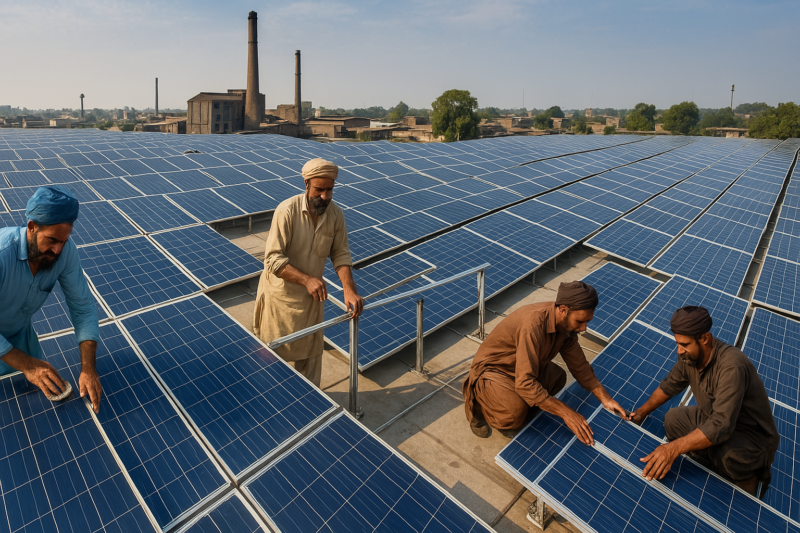Pakistan's Remarkable Solar Surge: From Chaos to Clean Energy Leadership
Key Ideas
- Pakistan imported an impressive 22 gigawatts of solar panels in a single year by the end of 2024, surpassing countries like Canada and the UK.
- The country's historic journey from geopolitical turmoil and instability to clean tech success showcases a significant shift in governance and energy pragmatism.
- Pakistan's carbon emissions per capita are relatively low, but its carbon intensity per unit of GDP highlights the need for a transition to cleaner energy sources for economic sustainability.
- The surge in solar power adoption in Pakistan was primarily driven by economic factors, with solar becoming a cost-effective alternative to imported fossil fuels, leading to a mainstream shift towards solar energy in 2024.
Pakistan has emerged as an unexpected leader in the global solar industry by importing an astonishing 22 gigawatts of solar panels within a single year, catapulting the country into the top tier of solar adopters. This surge in solar power adoption, which outpaced countries like Canada and the UK, has been a remarkable transformation for a nation historically marred by geopolitical turmoil and instability. Despite its relatively low carbon emissions per capita, Pakistan's high carbon intensity per unit of GDP underscores the urgency for transitioning towards cleaner energy sources to ensure sustainable economic development.
The success story of Pakistan's clean tech boom can be attributed to a shift towards energy pragmatism and governance improvements over the past two decades. The country's journey from chaos to functionality is emblematic of a broader trend across Asia, emphasizing order, competence, and steady economic progress over ideological posturing. The current explosion in solar power adoption in Pakistan was primarily driven by economic factors, with the affordability of solar panels and the rising costs of imported fossil fuels prompting businesses to opt for solar energy solutions and detach from the unreliable grid.
This significant milestone in Pakistan's energy transition highlights the potential for countries with a history of conflict and colonial legacies to enhance resilience and embrace clean energy technologies. The nation's proactive approach towards solar power not only addresses environmental concerns but also presents an opportunity to boost economic growth while reducing dependence on carbon-intensive energy sources.
Topics
Asia
Utilities
Clean Energy
Energy Transition
Solar Power
Economic Development
Resilience
Governance
Policy Reform
Latest News
